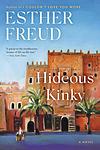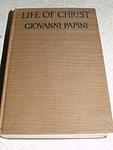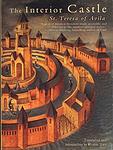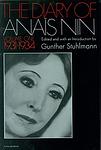The Greatest "Fiction, Nonfiction" Books of All Time
Click to learn how this list is calculated.
This list represents a comprehensive and trusted collection of the greatest books. Developed through a specialized algorithm, it brings together 284 'best of' book lists to form a definitive guide to the world's most acclaimed books. For those interested in how these books are chosen, additional details can be found on the rankings page.
Genres
Countries
Date Range
Reading Statistics
Click the button below to see how many of these books you've read!
Download
If you're interested in downloading this list as a CSV file for use in a spreadsheet application, you can easily do so by clicking the button below. Please note that to ensure a manageable file size and faster download, the CSV will include details for only the first 500 books.
Download-
1. The Republic by Plato
"The Republic" is a philosophical text that explores the concepts of justice, order, and character within the context of a just city-state and a just individual. It presents the idea of a utopian society ruled by philosopher-kings, who are the most wise and just. The dialogue also delves into theories of education, the nature of reality, and the role of the philosopher in society. It is a fundamental work in Western philosophy and political theory.
-
2. Fear and Loathing in Las Vegas: A Savage Journey to the Heart of the American Dream by Hunter S. Thompson
This book is a semi-autobiographical novel that chronicles the adventures of a journalist and his attorney as they embark on a drug-fueled trip to Las Vegas. The narrative is a wild and hallucinatory exploration of the American Dream, filled with biting social commentary and outrageous antics. The protagonist's quest for the American Dream quickly devolves into an exploration of the darker side of human nature, highlighting the excesses and depravities of 1960s American society.
-
3. Look Homeward, Angel by Thomas Wolfe
The novel tells the story of Eugene Gant, a brilliant and restless young man whose passion for a greater intellectual life shapes his adolescent years in rural North Carolina. Eugene's story is a deeply personal reflection of the author's own life, filled with vivid, poetic descriptions of the North Carolina landscape. The narrative explores themes of family, ambition, and the desire for a life beyond the confines of a small town.
-
4. The Rings of Saturn by W. G. Sebald
"The Rings of Saturn" is a richly detailed travelogue that follows the narrator's journey along the coast of Suffolk, England. The narrative weaves together history, literature, and personal anecdotes, exploring topics as diverse as the decline of the herring industry, the horrors of colonialism in the Congo, and the life of philosopher Sir Thomas Browne. The book is characterized by its melancholic tone, its digressive style, and its meditative reflections on memory, time, and decay.
-
5. The Labyrinth of Solitude by Octavio Paz
This book is a profound and vivid exploration of Mexico's character, culture, and identity. The author delves into Mexico's history, politics, and psyche, examining the country's deep solitude and its impact on the national character. The book provides a comprehensive analysis of Mexican society, its myths, symbols, and rituals, offering a deep understanding of the Mexican people's unique way of perceiving the world. It also discusses the influence of the United States on Mexico and the complex relationship between the two countries.
-
6. The Executioner's Song by Norman Mailer
"The Executioner's Song" is a true crime novel that tells the story of Gary Gilmore, a man who, after being released from prison, embarks on a murder spree in Utah that leads to his capture and execution. The book delves into Gilmore's troubled life and psyche, his relationships, and the legal and moral debates surrounding his death sentence. It provides an in-depth look at the American criminal justice system and capital punishment.
-
7. The Periodic Table by Primo Levi
"The Periodic Table" is a collection of short stories that use elements of the periodic table as metaphors to explore the author's experiences as a Jewish-Italian chemist before, during, and after World War II. Each chapter is named after a chemical element, reflecting its significant role in the story. The work provides deep insights into the human condition and the power of science, while also serving as a poignant memoir of survival during the Holocaust.
-
8. Émile by Jean-Jacques Rousseau
The book in question is a seminal work in the field of education and philosophy, presenting a comprehensive treatise on the nature of man and the importance of education tailored to the individual's developmental stages. The author argues for a system of education that allows for the natural development of a child's abilities and senses, advocating for learning through experience rather than traditional academic instruction. The narrative follows the growth of a fictional boy, illustrating the author's educational philosophy through his upbringing, which emphasizes moral and emotional development alongside intellectual growth. The work challenges conventional notions of education and has had a profound impact on modern educational theory.
-
9. The Emigrants by Winfried Georg Sebald
"The Emigrants" is a novel that explores the experiences and memories of four different emigrants, each with a unique and complex history. The narrative primarily focuses on the psychological impact of displacement and the haunting nature of the past. The author delves deep into their lives, revealing their struggles with identity, loss, and the persistent influence of their roots. The narrative is interwoven with historical events, photographs, and other documents, creating a rich tapestry that blurs the line between fact and fiction.
-
10. Advertisements for Myself by Norman Mailer
This book is a collection of short stories, essays, interviews, and previously unpublished works by a renowned author. It is a self-reflective exploration of his life, work, and philosophy. The author boldly critiques his own work, discusses his political and social views, and provides insight into his personal life. The book, controversial and provocative, serves as a fascinating study of the author's self-perception and creative process.
-
11. Rameau's Nephew by Denis Diderot
"Rameau's Nephew" is a philosophical dialogue that explores themes of morality, societal norms, and the nature of genius. The story revolves around a conversation between a philosopher and a character who is the nephew of a famous musician. The nephew, a freeloader and a parasite, defends his lifestyle by arguing that it is not only acceptable but also necessary in a society where wealth and power determine value. The dialogue delves into the contradictions and ironies of social conventions, challenging traditional notions of virtue, vice, and human nature.
-
12. On the Heights of Despair by Emil Cioran
"On the Heights of Despair" is a philosophical exploration of the human condition, particularly focusing on themes such as existentialism, despair, and nihilism. The author delves into the idea of life as suffering and the inevitability of death, offering a bleak yet thought-provoking perspective on existence. The work is a profound contemplation of life's absurdity, loneliness, and the struggle to find meaning, presenting an introspective journey into the depths of despair and the heights of existential thought.
-
13. What Is the What by Dave Eggers
The novel is a fictionalized account of a real-life Sudanese refugee, Valentino Achak Deng, who was forced to flee from his village during the Second Sudanese Civil War. The story follows his harrowing journey as a child through Ethiopia and Kenya, his life in various refugee camps, and his eventual resettlement in the United States. The book explores themes of survival, identity, and the power of storytelling, while shedding light on the tragic history and ongoing humanitarian crisis in Sudan.
-
14. Hideous Kinky by Esther Freud
A young woman travels to Morocco with her two daughters in search of a more fulfilling and adventurous life. The novel explores the experiences of the two young girls as they navigate this new and unfamiliar culture, their mother's search for spiritual enlightenment, and their struggles with poverty. The narrative is a poignant exploration of childhood innocence, the complexities of motherhood, and the clash of cultures.
-
15. Life of Christ by Giovanni Papini
"Life of Christ" is a comprehensive biography of Jesus Christ, exploring his life, teachings, and impact on humanity. The book delves into the historical, cultural, and spiritual context of his era, providing in-depth analysis of his miracles, parables, and relationships with his disciples and followers. The author also examines the significance of Christ's crucifixion and resurrection, aiming to provide a thorough understanding of his life and mission.
-
16. Journey to the Alcarria by Camilo José Cela
"Journey to the Alcarria" is a travel literature piece that takes the reader on a journey through the Alcarria region in Spain. The protagonist, a solitary traveler, explores the landscape, culture, and people of this region, offering detailed descriptions and observations. The narrative captures the essence of Spain's post-war period, revealing the harsh realities of rural life and the resilience of its people. The book is both a physical journey through a specific place and a metaphorical journey into the human condition.
-
17. Schindler's Ark by Thomas Keneally
The book is a historical novel based on the true story of a German industrialist who becomes an unlikely humanitarian amid the barbaric Nazi reign. When he witnesses the horrors inflicted upon the Jews, he is moved to save as many as he can by employing them in his factory. His actions, driven by courage and compassion, lead to the salvation of over a thousand Jewish workers from certain death in the Holocaust. The narrative explores themes of morality, survival, and the capacity for good in the face of overwhelming evil, as the protagonist navigates the complexities of war and the human spirit.
-
18. The Interior Castle by Teresa of Avila
"The Interior Castle" is a spiritual guide that uses the metaphor of a castle with seven chambers, or 'mansions', to explain the journey of faith. The author describes each mansion as a step closer to God, with the innermost chamber representing union with the divine. The book explores various spiritual concepts such as self-knowledge, detachment, humility, and divine love, providing a roadmap for personal transformation and spiritual growth.
-
19. The Diary of Anais Nin, 1931-1934 by Anaïs Nin
This book is a deeply personal journal of a woman's life from 1931 to 1934, providing an intimate look into her experiences, thoughts, and emotions during this period. The author explores her relationships, her struggles with her writing, and her journey of self-discovery. The diary also captures her interactions with notable personalities of the time, giving readers a unique glimpse into the cultural and social milieu of the early 20th century. Her introspective and poetic style adds a layer of depth to her observations and reflections.
-
20. The Way of a Pilgrim by Anonymous
"The Way of a Pilgrim" is a 19th-century Russian Christian text that follows an anonymous protagonist on a spiritual journey across the country. The protagonist is a wanderer who seeks to understand the teachings of the Bible and the nature of ceaseless prayer. Through his travels and encounters with various people, he explores the concept of the Jesus Prayer and the philosophy of the Eastern Orthodox Church. The book is a profound exploration of faith, spirituality, and the quest for divine connection.
-
21. Gospels by Unknown
"Gospels" is a collection of four books from the New Testament of the Christian Bible, written by various authors. These books provide accounts of the life, teachings, death, and resurrection of Jesus Christ, each from a different perspective. They serve as the primary source of information about Jesus and form the basis of Christian theology and belief.
-
22. Wittgenstein's Nephew by Thomas Bernhard
"Wittgenstein's Nephew" is a semi-autobiographical novel that explores the friendship between the narrator and his friend Paul, who is the nephew of the famous philosopher Ludwig Wittgenstein. The story takes place in Vienna and is set against the backdrop of the Austrian mental health system. The novel delves into themes of sanity, insanity, and the fine line that separates the two, while also offering a critique of Austrian society. It is a meditation on the nature of illness, both physical and mental, and the impact it has on personal relationships and one's perception of the world.
-
23. The Negro Caravan: Writings by American Negroes by Sterling Allen Brown, Arthur Paul Davis, Ulysses Lee
"The Negro Caravan: Writings by American Negroes" is a comprehensive anthology that compiles the works of African American writers from the 18th century through the mid-20th century. The collection includes a broad range of genres such as essays, poetry, drama, and fiction. It provides a deep and diverse representation of African American literary and cultural history, showcasing the struggles, achievements, and contributions of Black intellectuals and artists throughout the years.
-
24. Dark symphony: Negro literature in America by James A. Emanuel (Comp), Theodore L. Gross
"Dark Symphony: Negro Literature in America" is a comprehensive anthology that explores the rich and varied African American literary tradition. Compiled by two renowned scholars, the book features a broad range of works including poetry, essays, short stories, and excerpts from novels, plays, and autobiographies. These works, which span several centuries, reflect the struggles, triumphs, and unique cultural experiences of African Americans throughout history. The anthology serves as an invaluable resource for understanding the depth and diversity of African American literature.
-
25. Greguerias by Ramón Gómez de la Serna
The book is a collection of witty, poetic, and often surreal aphorisms and reflections that blend humor, irony, and keen observation to capture the essence of everyday objects and experiences in a unique and thought-provoking way. These brief, imaginative musings offer a window into the author's playful mind, as he transforms the mundane into the extraordinary with his inventive use of language and metaphor. The work is a testament to the author's innovative spirit and his ability to see the world through a lens of whimsical creativity.
Reading Statistics
Click the button below to see how many of these books you've read!
Download
If you're interested in downloading this list as a CSV file for use in a spreadsheet application, you can easily do so by clicking the button below. Please note that to ensure a manageable file size and faster download, the CSV will include details for only the first 500 books.
Download























